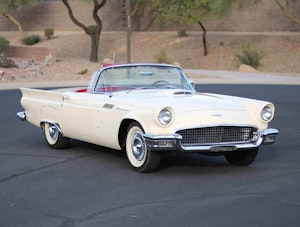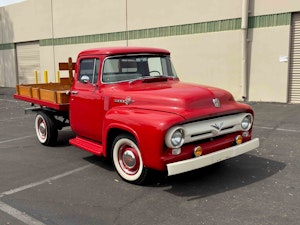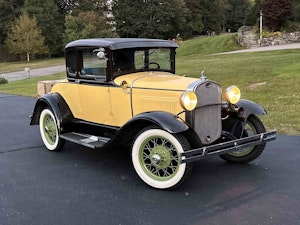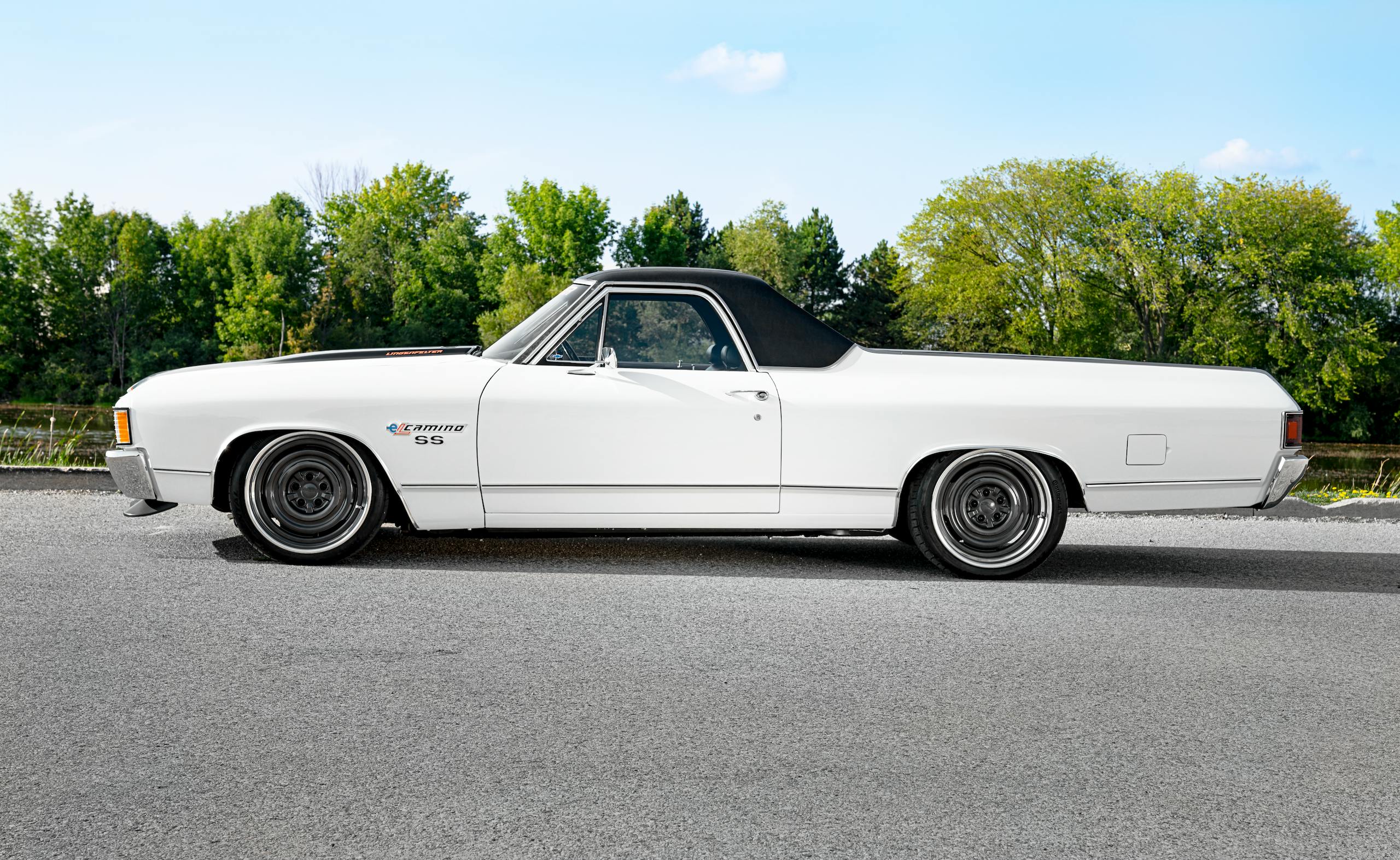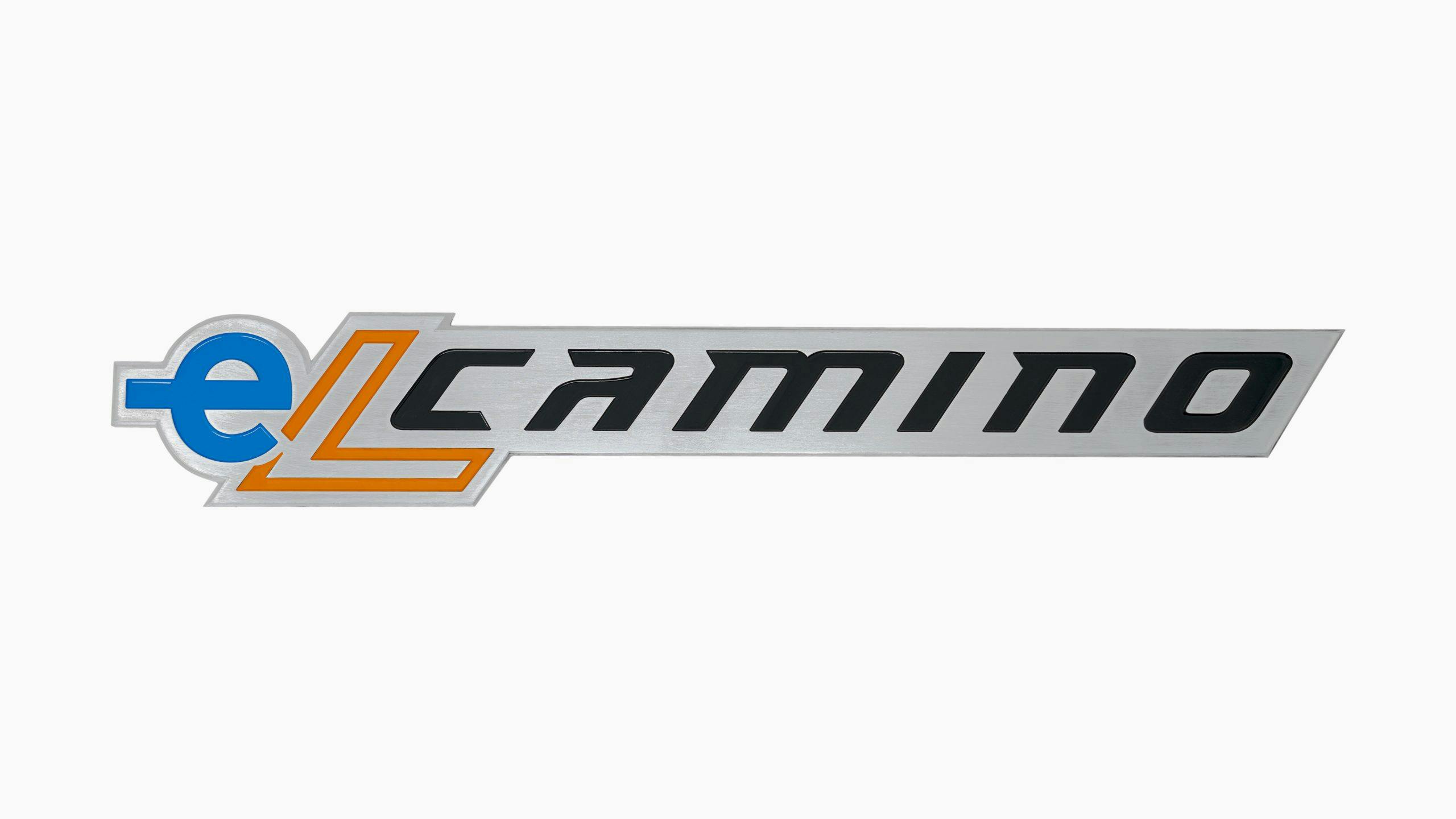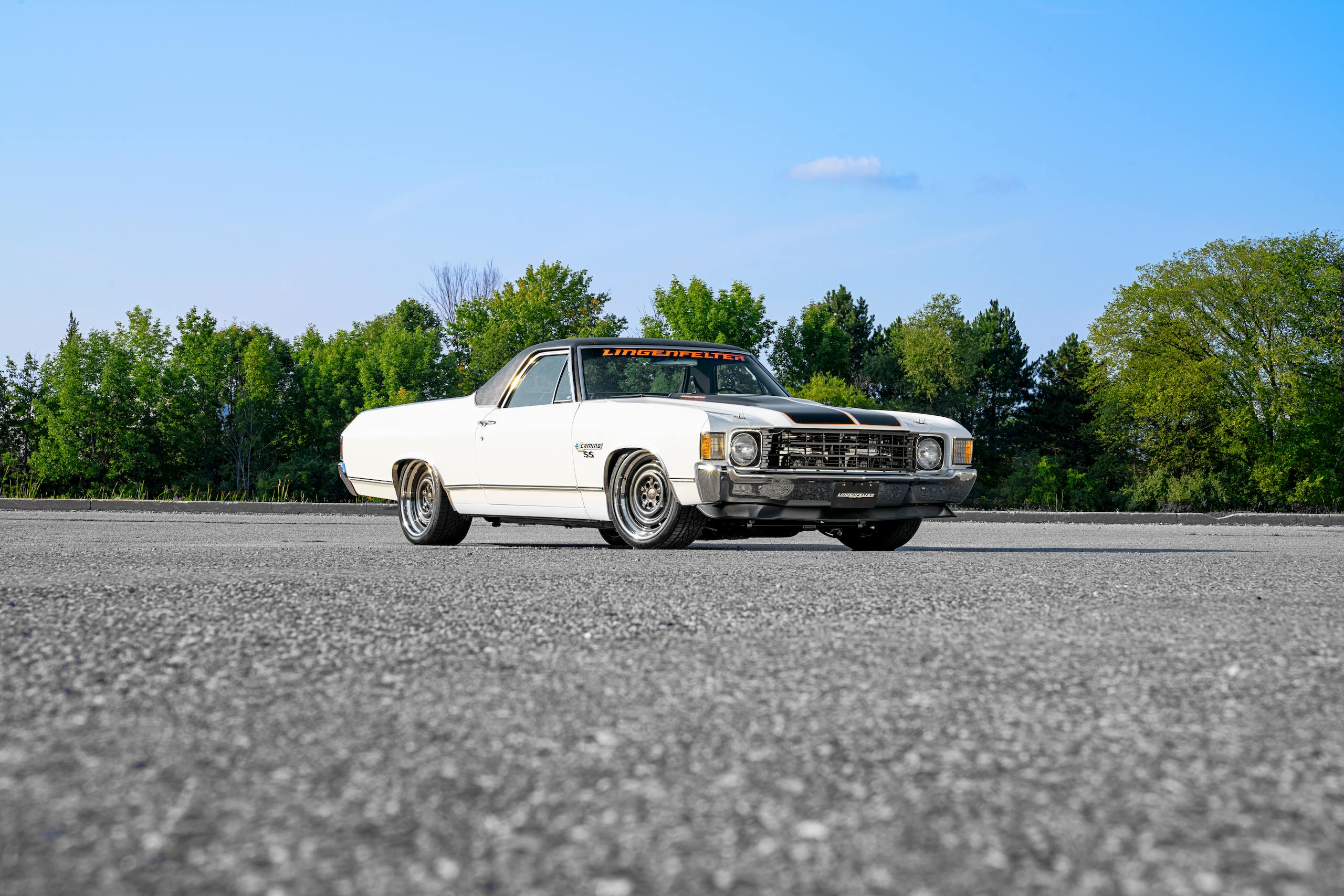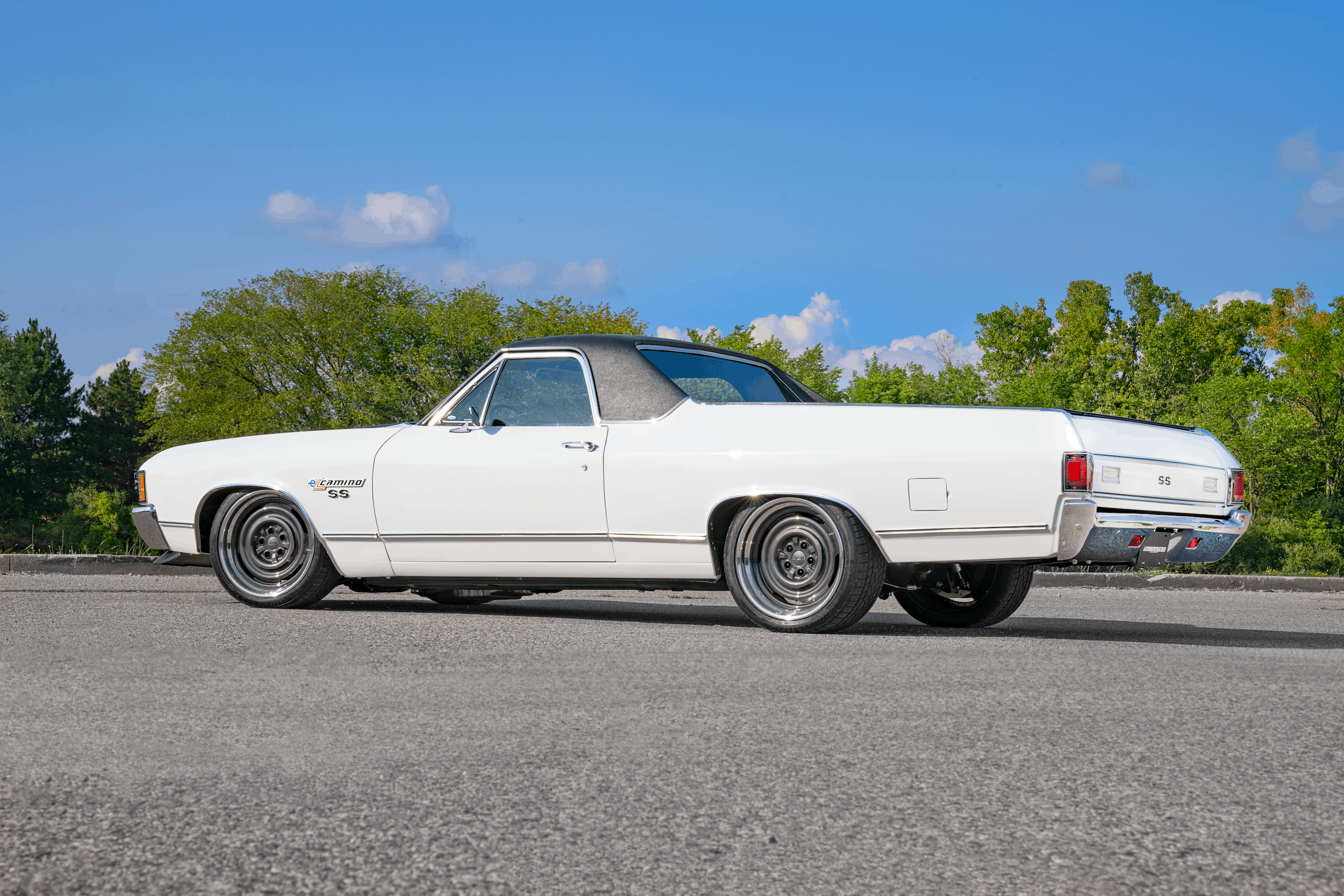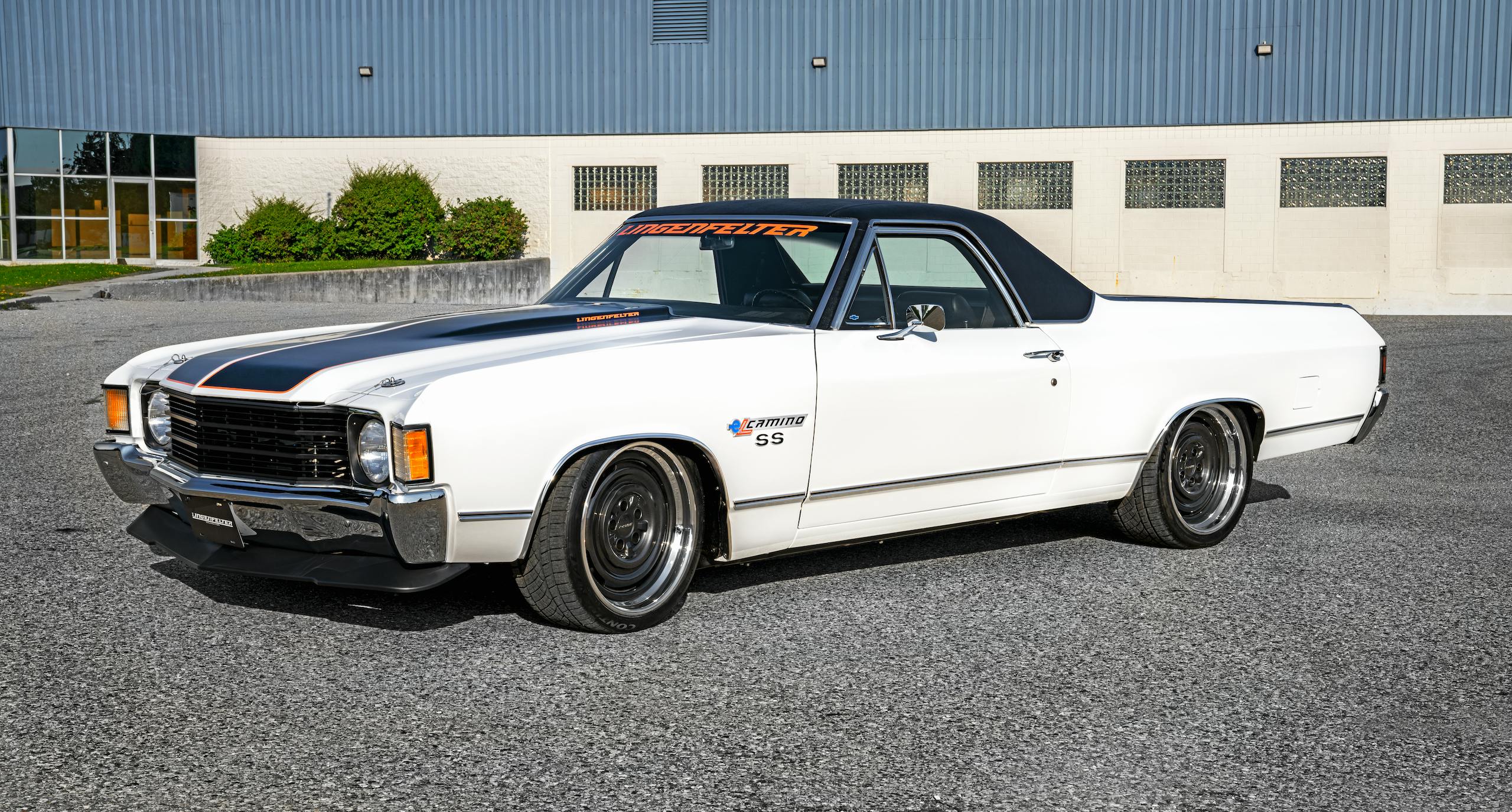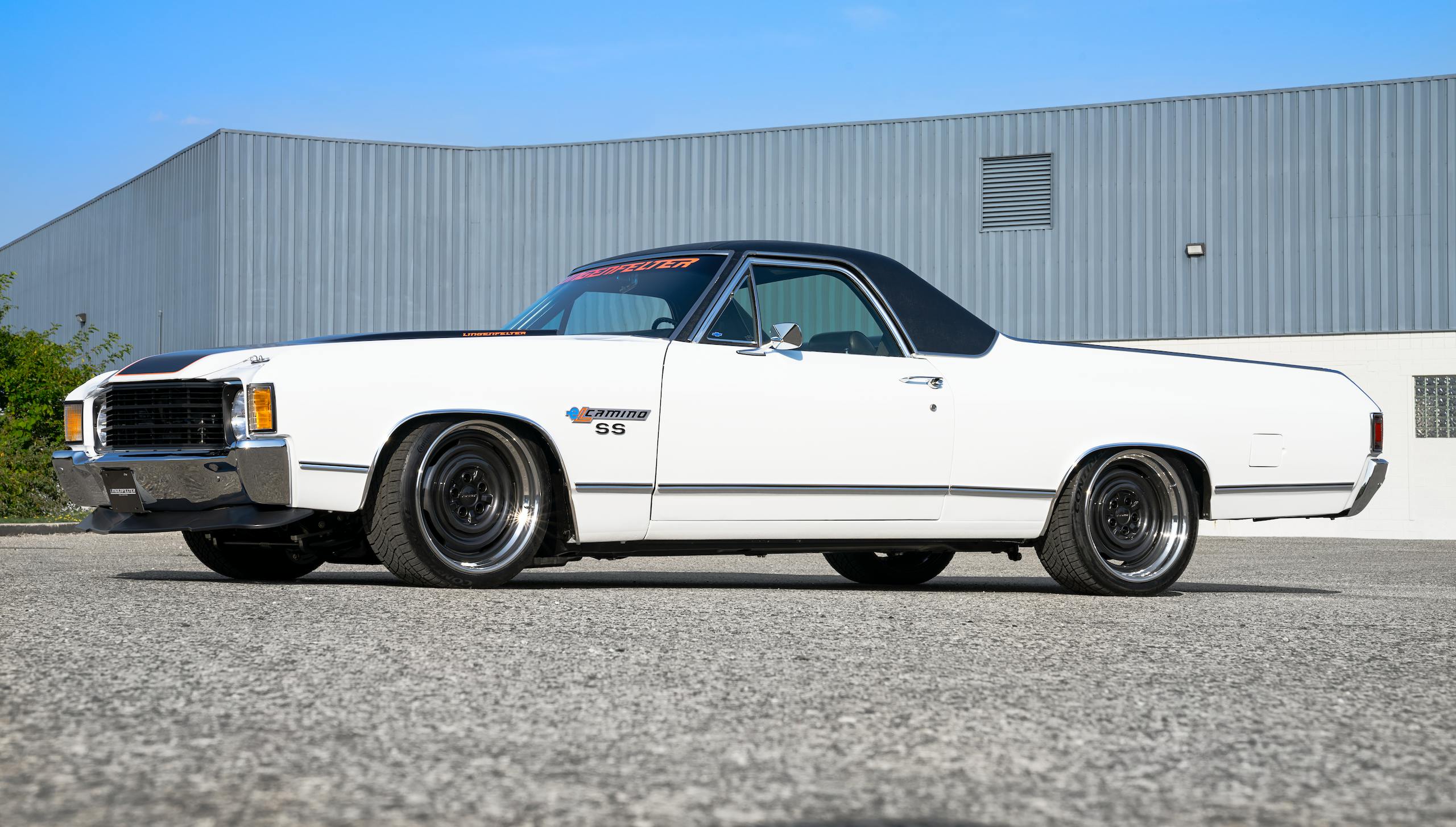Media | Articles
Lingenfelter’s electric El Camino is a sign of crate motors to come
Like it or not, our beloved pistons are going the way of the buggy whip. The latest proof is this 1972 Chevy El Camino propelled by an AC motor pirated from a Chevy Bolt.
Collaboration between Chevrolet Performance and Lingenfelter Performance Engineering resulted in this, the fifth in a fleet of concept vehicles aimed at purging pistons from performance addicts’ daydreams. An eCOPO Camaro kicked off this march to the future at the 2018 SEMA show. An electric C-10 pickup followed in 2019, an electric K5 Blazer in 2020, and a Project X ’57 Chevy in 2021. Chevrolet presented the El Camino shown here at last December’s PRI (Performance Racing Industry) gathering in Indianapolis. The machine’s powertrain is a standalone package that GM plans to offer for sale as an “eCrate,” for installation into a vehicle of your choice.
In 1973, Ken Lingenfelter turned his car-collecting hobby into a tuning business specializing in GM products. In 2008, he acquired the Decatur, Indiana, engine-building enterprise founded by his distant and deceased cousin John Lingenfelter. With its engineering efforts ranging in focus from competitive drifting to chassis tuning, Lingenfelter Performance has evolved into one of the aftermarket’s most respected brands.
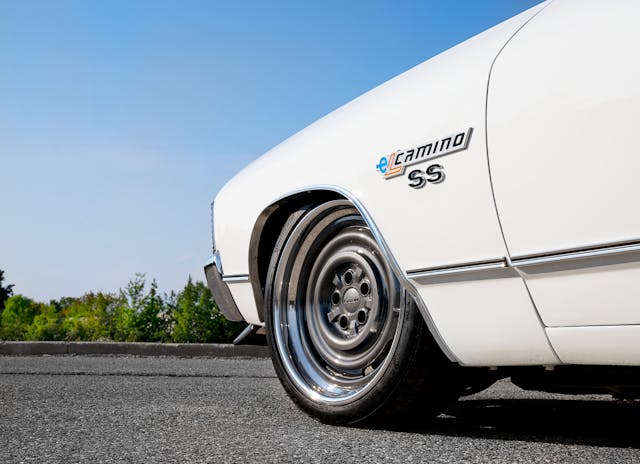
Lingenfelter calls this car the eLcamino. Save its hunkered stance, aftermarket wheels and tires, and center-stripe decor, the Chevy appears little different from the machine that left a GM assembly line half a century ago. Under the hood it’s vive la différence: bright orange power cables and inscrutable electronic control boxes atop an AC motor with the business end aimed rearward.
Before starting the drivetrain conversion, Lingenfelter techs in Wixom, Michigan, powder-coated the car’s frame and treated the Chevy to fresh exterior paint. Then they bolted in the eCrate kit: a standard Bolt electric motor rated at 200 hp and 266 lb-ft of torque, plus associated controls. The motor’s output is mated to a GM 4L60 four-speed Turbo-Hydramatic transmission. A conventional driveshaft delivers torque to a stock live rear axle. A 66 kilowatt-hour battery pack consisting of 288 lithium-ion cells and weighing nearly 1000 pounds rides in the bottom of the El Camino’s cargo bed.
Marketplace
Buy and sell classics with confidence
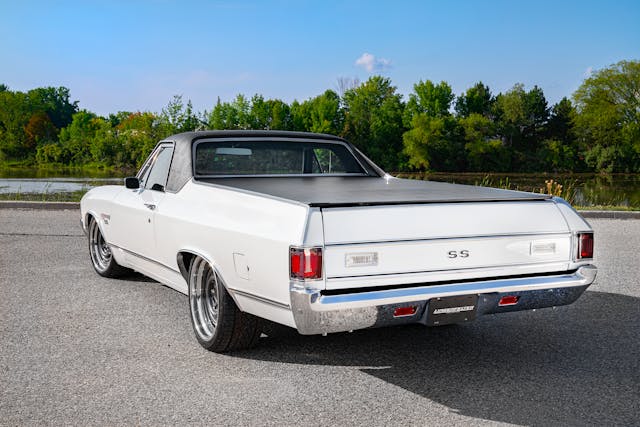

While 200 hp might not sound impressive, the motor’s instant torque multiplied by the transmission’s short first gear and 5.37:1 axle ratio yield impressive wheelspin on demand. Aside from the whirr of rubber melting into white smoke, the soundtrack is eerily calm.
Lingenfelter personnel built and tuned this package over a six-month period in 2021. The transmission was modified to incorporate regenerative braking, stretching operating range. While it’s premature to speculate on the coming eCrate’s price, traditional piston engines sold by GM in crate form currently run from less than $10,000 to $29,500. (The latter figure represents the 1004-hp, ZZ632-spec, big-block V-8. Get it while you can.)
To ensure that future car modifiers aren’t slowed down with technical headaches, Chevy’s eCrates can only be installed by factory trained Electric Specialty Vehicle Modifiers. Lingenfelter Performance is the first such organization. According to Lingenfelter, Chevy Performance will officially launch its first eCrate package this spring. For those tired of engine oil spots on their pristine garage floor, salvation is just around the corner.




